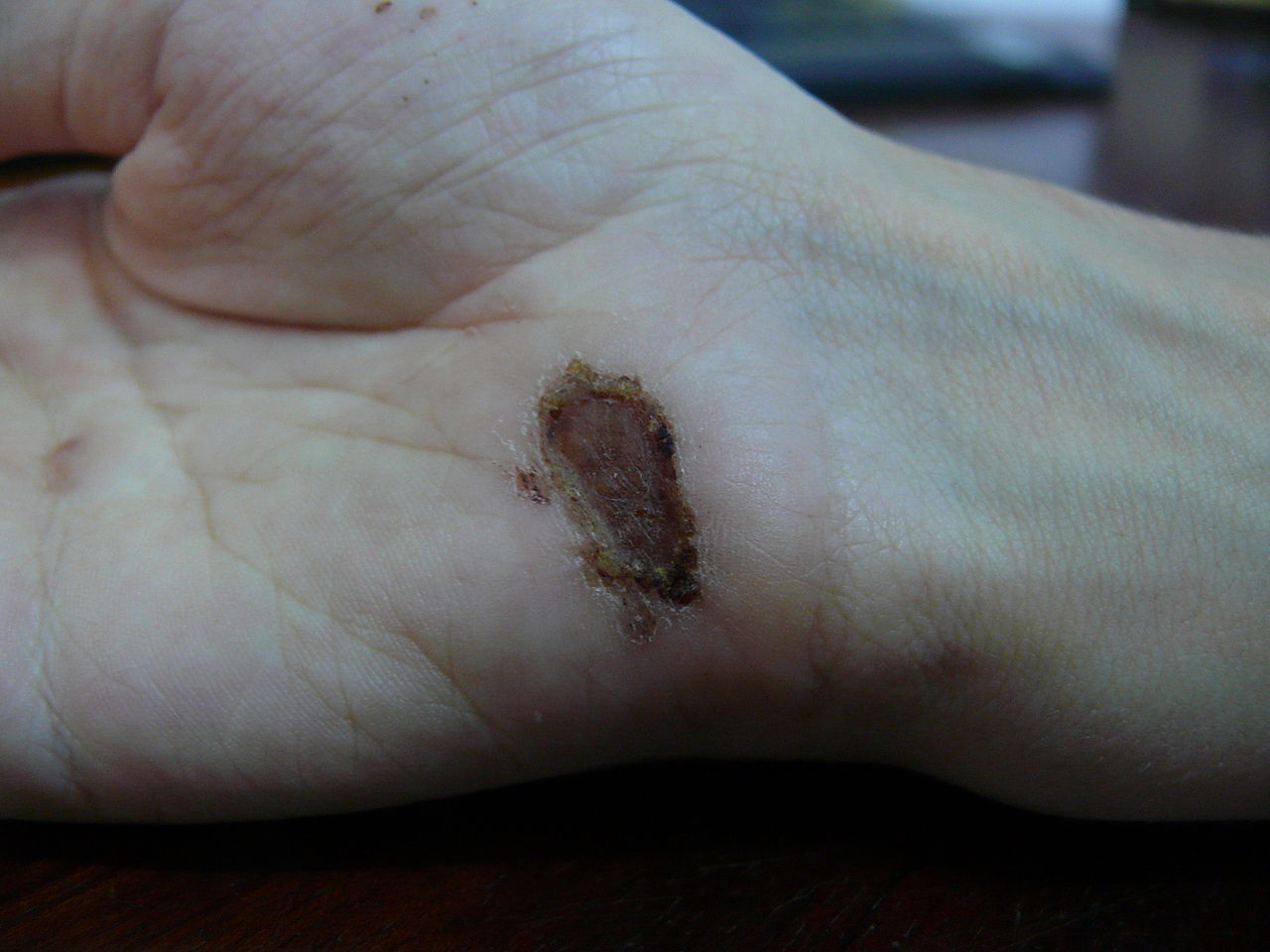Playlist
Show Playlist
Hide Playlist
Wound Healing: Impaired Healing – Inflammation and Wound Repair
-
Slides Inflamation Cellular Pathology.pdf
-
Download Lecture Overview
00:01 What may then cause impaired healing? Infections, diabetes mellitus for sure. Not only will there be peripheral vascular disease but then also neuropathy. Poor nutrition may result in decreased protein which is very much required for wound healing. 00:22 Vitamin C deficiency. The picture is showing you why you need proper vitamin C so that you can hydroxylate your collagen. The cross-linking has now been decreased in vitamin C deficiency. Welcome to scurvy. Look for major haemarthrosis. 00:39 Gum bleeding, scurvy. Look for malnutrition. Zinc is required for collagenase. Copper is required for oxidase. 00:49 In biochemistry make sure that you keep your oxidase separate from hydroxylase. Hydroxylase, vitamin C. Oxidase, copper. 01:01 Collagenase, zinc. In fact, if you go to the local pharmacy, you can always find zinc complements or zinc supplements in which they claim that it helps with immunity. It does, we need it endogeneously. But beyond that. 01:19 Anyhow, people use different things for marketing. Know as to why. There is some truth to the fact that zinc is required for collagenase. 01:28 Glucocorticoids. Why would a patient require glucocorticoids. If it's causing decreased wound healing, pause here for one second. 01:40 Glucocorticoid, very interesting drug is'nt it. Glucocorticoid causes neutrophilic leucocytosis. Glucocorticoid causes lymphopenia. Glucocorticoid causes decreased wound healing. Think of a patient. You are a plastic surgeon. You want to be a plastic surgeon? Go do it. Don't let anyone stop you from being what you want to be. You have a thriving plastic surgery practice. You are doing face lifts. When you do a face lift you are introducing wound into your patient on the face. 02:13 Do you want much scar formation and collagen deposition? Of course not. So you purposely are then going to inject glucocorticoid derivatives into the patient so that you can then monitor and supervise the amount of wound or excuse me. 02:30 The healing that is taking place in your patient. Obviously you are not going to put so much where it does'nt heal at all. 02:36 But what you are doing is minimizing scar formation. So when the bandages come of the face, your patient looks "Oh I am so beautiful Doc". Thanks to you. And your practice begins to thrive, or has been. Anyhow, interesting huh, glucocorticoids. 02:54 Organ repair. Liver, potential for regenerative nodules. That's important. Meaning to say that during the repair process you might actually have nodules taking place. Lung, type II pneumocytes will help you repair Clara cells. 03:08 Help you repair. In the brain, it's called gliosis. Notice here there are no fibroblast. Yes, in the brain there are no fibroblast. But Dr. Raj why would you call this a gliotic scar? It's a misnomer. You have gliosis which will be astrocytes and microglial cells. They will come in and repair the brain. Your liquefacting necrosis as you know but you end up forming a cavity. Peripheral nerve, something called Wallerian degeneration where Schwann cells will play a key role.
About the Lecture
The lecture Wound Healing: Impaired Healing – Inflammation and Wound Repair by Carlo Raj, MD is from the course Cellular Pathology: Basic Principles with Carlo Raj.
Included Quiz Questions
Which of the following must be deficient to cause a deficiency in lysyl oxidase?
- Copper
- Vitamin C
- Protein
- Zinc
- Folate
Which of the following is NOT caused by glucocorticoids?
- Decreased collagen cross linking
- Neutrophilic leukocytosis
- Lymphopenia
- Decreased collagen synthesis
- Decreased wound healing
Which of the following is involved in the repair of brain tissue?
- Gliosis
- Degeneration of astrocytes
- Wallerian degeneration
- Schwann cells
- Regenerative nodules
Customer reviews
5,0 of 5 stars
| 5 Stars |
|
5 |
| 4 Stars |
|
0 |
| 3 Stars |
|
0 |
| 2 Stars |
|
0 |
| 1 Star |
|
0 |




